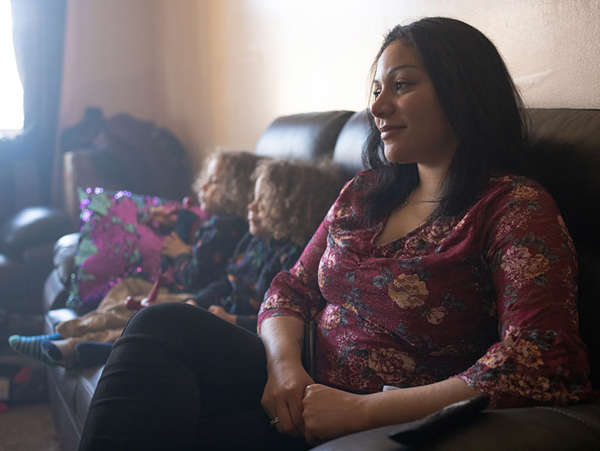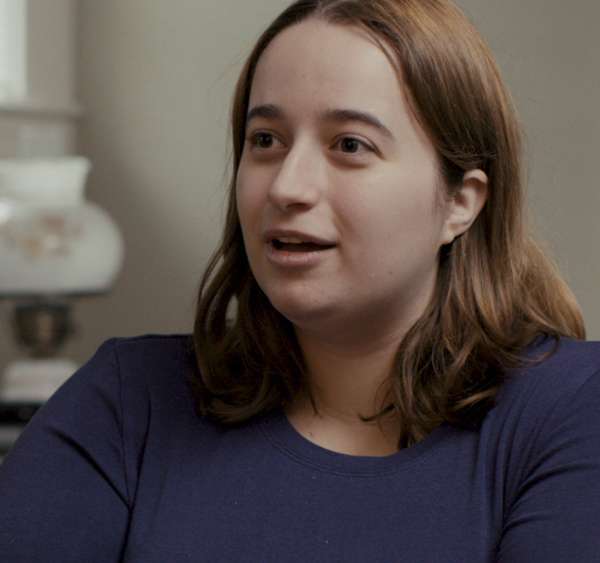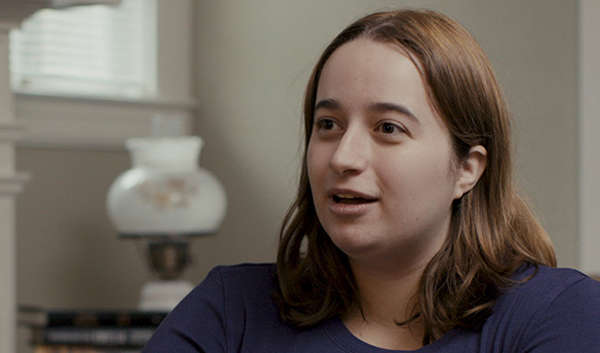Change begins at home
When families are at risk of separation, Homebuilders helps them stay safely together.
Carol Lee, senior editor

This family needed help.
Their teen daughter’s behaviors had become unsafe, prompting the Department of Child, Youth, and Families (DCYF) to get involved. A judge determined Mia’s family situation didn’t merit her removal into foster care, yet wouldn’t approve her return home without services, instead recommending a stay in a residential care facility. But the local residential facility for teen girls wouldn’t admit Mia due to the liability of her medical diagnosis.
There was nowhere for her to go.
Mia spent the next six months in a patient room at the local children’s hospital until Bethany’s Homebuilders™ program made it possible for her to safely return home.
Services provided in the home
“We’d needed help for years,” said Mia’s mom, Alyssa. Along with her two young children, Alyssa experienced a traumatic domestic violence situation. Although their lives had stabilized by the time Alyssa remarried, her daughter struggled. And when Mia was diagnosed with diabetes at age 12, her behaviors at home became more intense. She was skipping school, leaving the house without letting anyone know where she was, swearing at her parents, drinking, and on a few occasions becoming physically violent. At 14, Mia assaulted her mom and her 9-year-old brother, leading Alyssa to make the difficult decision to call the police.
“We’d been in and out of DCYF for years,” said Alyssa. “They’d always told us, ‘Keep doing what you’re doing.’ But when the incident happened, I didn’t know what else to do.”
At first, Alyssa’s visits with Mia at the children’s hospital had to be supervised, but this restriction was dropped after a few weeks. Yet months passed without a solution.
“We weren’t finding a placement for Mia where she could get the services she needed,” said Alyssa. “But to have her come home, she needed help. We needed help. I didn’t want her to be where she was; I wanted her to be home and to get the services she needed here.”
DCYF staff eventually referred Mia and her family to Bethany. With the help of the Homebuilders program, this family grew stronger and stayed together.
Before families reach a breaking point
Homebuilders was developed in 1974 by the Institute for Family Development. Using the Institute’s evidence-based model and curriculum, Bethany’s office in Rhode Island began providing Homebuilders services in 2017. Stephanie Maratta established Bethany’s Homebuilders program there and is the therapist who provided services for Mia’s family.
“Alyssa is a great mom, but she was nearly forced to be labeled neglectful for Mia to qualify for services,” said Stephanie. “Mia only received services when her family could prove she needed hospitalization. Mental health services for teens are limited in this area, and there aren’t many that will provide services in your home unless the family is 100% failing. More community services are available for teens already in foster care than for teens struggling at home, and there are very few services that work with children and parents together.”
Homebuilders seeks to provide the intensive services families need before they reach a breaking point, where a child would need to enter foster care.
“We believe the best place for children is at home, with their families,” said Stephanie, “so we teach families the skills they need to mitigate safety concerns that often lead to out-of-home placement.”
Over a four-week period, a Homebuilders practitioner spends an average of 8-12 hours a week in a family’s home, face-to-face. They teach foundational skills such as communication, listening, critical thinking, and parenting skills to help parents connect with their children and help them resolve the pressing conflict. Each practitioner carries just two or three cases at a time so they can be on-call for families 24/7—whenever they need the help most.
According to the Institute for Family Development’s website, practitioners use research-based interventions with a 70-90% success rate “of referred families that remain safely together six months to a year following services.”
In the last five years, Bethany’s Rhode Island program has worked with nearly 200 families with an 88% success rate keeping children at home with their families. This innovative, family-centered program kept more than 400 children out of foster care.
Tailored to families’ needs
In early 2022, Stephanie began the four-week Homebuilders process with Mia and her family. Some sessions were one-on-one with Mia. Some were one-on-one with Alyssa. Sometimes the whole family was present. Sessions took place at different times of day, lasting anywhere from an hour to three hours, depending on the family’s needs.
“Mia doesn’t connect easily with others,” said Alyssa. “I was worried she wouldn’t connect with Stephanie and the services would be pointless. But Stephanie was great, and Mia trusted her after only a few sessions. After four days, she had a breakthrough and apologized for what happened.”
Stephanie worked with Mia to improve her communication skills with her mother, including how to use “I” statements to express her thoughts and feelings. They talked about mindfulness and staying positive about what Mia had been through. Mia’s confidence has grown at home and at school. When she recently made the honor roll, her family praised her hard work and celebrated with her favorite meal.
“Before Homebuilders, Mia would rarely talk to me,” said Alyssa. “Once she felt comfortable and learned some skills to express herself, she began to open up more to me and to her stepdad. And I learned how to listen, to better understand what was going on with her and where she was coming from. We still have a long road ahead of us; we’ve been through a lot.”
A change Stephanie noticed was Mia’s ability to accept the word “no.”
“Her tactic had been to simply keep asking until someone caved,” said Stephanie. “I asked her, ‘Do you think if you accepted no you would get more yes?’ She agreed, saying, ‘Probably, yes.’ She’s learning to accept parent control. Homebuilders helped Alyssa and her husband get their control back.”
Keeping families together
The change at home has also been transformational for Alyssa, who has started her own therapy to heal from her past trauma.
“I’m not worried about Mia running the streets anymore,” she said. “Mia’s not thinking negative, suicidal thoughts anymore. She’s happier, and that makes me happier. Learning how to give positive reinforcement has been so helpful.”
DCYF has taken note of how far this family has come and recognizes them as a success story. They’ve begun referring more families to Stephanie and her Bethany Homebuilders team.
“Without Homebuilders, Mia would probably be living in a residential home in another state, away from her family and without the services she needed,” said Alyssa. “And that would have crushed me.”
Today Mia and her mom enjoy baking together. She’s more open with her stepdad. She and her brother still argue like siblings, but Alyssa says they’re both more understanding.
“When Mia was away from us, I could tell he was down,” she said. “He’s happier that she’s home.”
Names have been changed for privacy.



